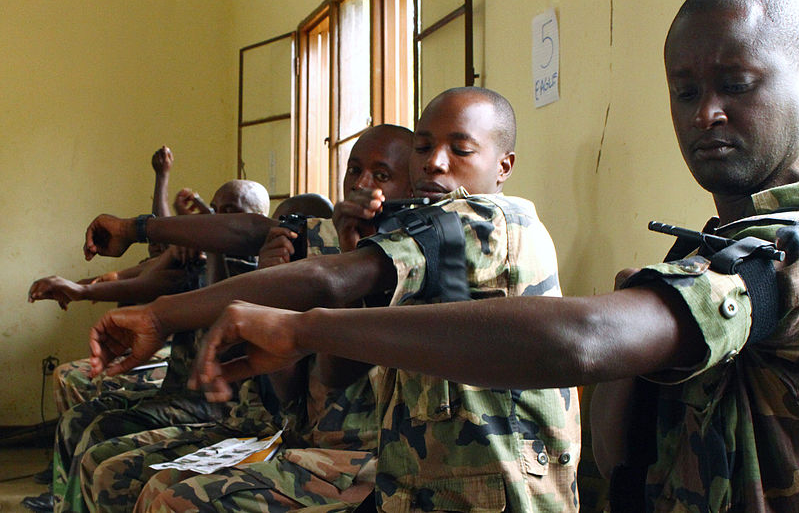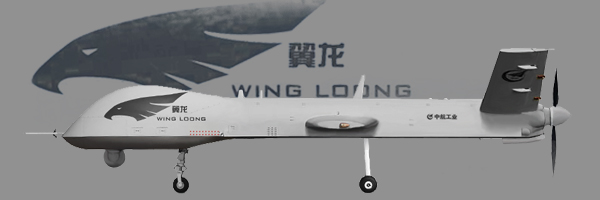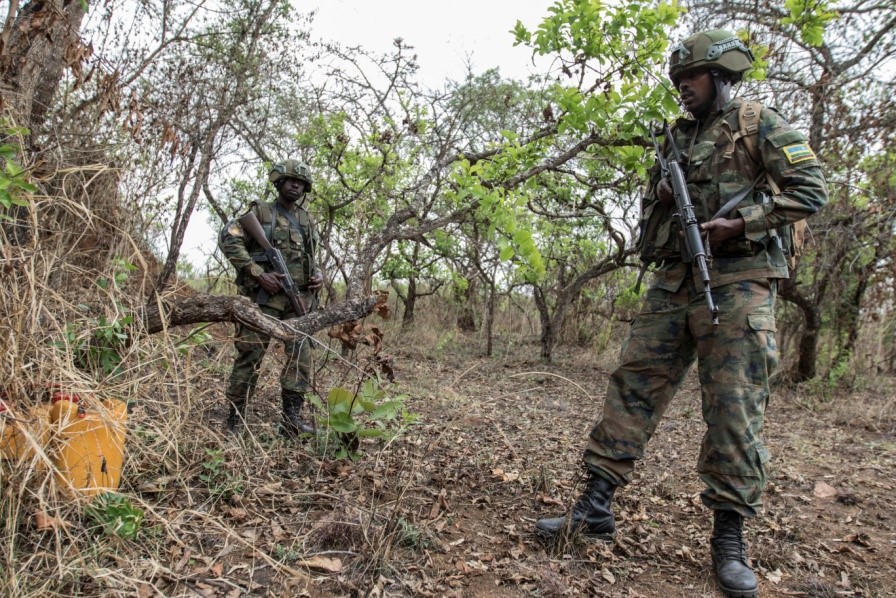
Rwandan Defense Force combat lifesaver training.
“In order to allow the state of siege to quickly restore peace in Ituri and North Kivu, the deputies supported during the debate the pooling of the Ugandan and DRC armed forces to hunt down the ADF and other negative forces.”
On 1 December, the Rwanda-based website Taarifa Rwanda reported on Uganda and Congo’s joint special forces operations against Allied Defense Forces (ADF) militants in Congo. ADF is loyal to the Islamic State in Iraq and Syria (ISIS). The article noted that Uganda and Congo believe they are preempting the siege of towns in Ituri and North Kivu, Congo by the militants. It was also noted that the Congolese National Assembly unanimously voted to support joint special forces operations and that there would be a long and protracted hunt by the two countries’ special forces in the jungle to root out the militants.
In August, Rwanda itself deployed soldiers to Mozambique to combat ISIS-loyal militants in that country. This was the first-ever foreign military excursion for Rwanda to coastal East Africa. More than one month later, according to the excerpted 25 September article in Kenya-based The East African, Rwandan president Paul Kagame pledged to continue counterterrorism operations in Mozambique. The article noted that Kagame traveled to the epicenter of the insurgency in Cabo Delgado province to address the joint forces of the Mozambique Armed Defence Force and Rwanda Defence Force, stating that Rwandan troops would not leave Mozambique until the security situation was stable.
According to the The East African, Rwanda’s contingent in Mozambique includes 1,000 soldiers, who Mozambican president Filipe Nyusi regards as heroes. Both Nyusi and Kagame justified the Rwandan troop deployment as necessary to fight the ADF and other ISIS-loyal militants, who Kagame described as a regional threat. Kagame, for example, noted that the militants included Kenyans, Tanzanians, Congolese, Somalis, and Rwandans. The two articles demonstrate how East African states are increasingly viewing counterterrorism through a regional lens and how cross-border counterterrorism operations, such as Uganda in Congo or Rwanda in Mozambique, will likely become more common in the region.
Source:
“Uganda-DRC Special Forces Search Bombed ADF Areas,” taarifa.rw (Rwandan based news website), 1 December 2021. https://taarifa.rw/uganda-drc-special-forces-search-bombed-adf-areas/
Members of the Congolese national assembly unanimously voted to support joint Ugandan and DRC operations to be more effective in tracking down the ADF, because, according to them, “before the state of siege is equal to during the state of siege.” In order to quickly restore peace in Ituri and North Kivu, the deputies supported during the debate the pooling of the Ugandan and DRC armed forces to hunt down the ADF and other negative forces.
Source: “Kagame says troops will stay put in Cabo Delgado to ensure stability, theeastafrican.co.ke (Kenya based publication covering regional developments), 25 September 2021. https://www.theeastafrican.co.ke/tea/news/east-africa/kagame-says-troops-will-stay-put-in-cabo-delgado-3562164
President Paul Kagame has praised the Rwandan troops deployed to fight insurgents in Cabo Delgado province of Mozambique for their good work fighting insurgents. While addressing the joint force of Mozambican Armed Defence and Rwanda Defence Force on Friday at Cabo Delgado, he also said the soldiers will stay put to stabilize and facilitate the return of displaced civilians to their homes. He was accompanied by his Mozambican counterpart Filipe Nyusi.
The Rwandan contingent is 1,000-soldier strong, made up of the army and the police who recently launched offensives against the insurgents in Cabo Delgado province. Botswana later sent a contingent of 296 and South Africa deployed 1,500 soldiers. President Kagame has defended the deployment, and said his country is footing the deployment bill for now, and the mission will stay on to train the Mozambican army, pointing out that the nature of the threat was regional given that the insurgents not only included Mozambicans, but also Tanzanians, Ugandans, Kenyans, Somalis, Yemenis, Congolese and Rwandan fighters.
Image Information:
Image: Rwandan Defense Force combat lifesaver training.
Source: US Army Africa from Vicenza, Italy
https://commons.wikimedia.org/wiki/File:Rwandan_Defense_Force_combat_lifesaver_training,_March_2011_-_Flickr_-_US_Army_Africa.jpg
Attribution: CC x 2.0


